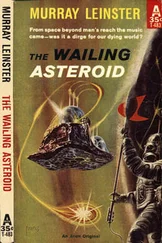Мюррей Лейнстер - The Machine That Saved The World
Здесь есть возможность читать онлайн «Мюррей Лейнстер - The Machine That Saved The World» весь текст электронной книги совершенно бесплатно (целиком полную версию без сокращений). В некоторых случаях можно слушать аудио, скачать через торрент в формате fb2 и присутствует краткое содержание. Год выпуска: 2016, Издательство: epubBooks Classics, Жанр: Фантастика и фэнтези, на английском языке. Описание произведения, (предисловие) а так же отзывы посетителей доступны на портале библиотеки ЛибКат.
- Название:The Machine That Saved The World
- Автор:
- Издательство:epubBooks Classics
- Жанр:
- Год:2016
- ISBN:нет данных
- Рейтинг книги:4 / 5. Голосов: 1
-
Избранное:Добавить в избранное
- Отзывы:
-
Ваша оценка:
- 80
- 1
- 2
- 3
- 4
- 5
The Machine That Saved The World: краткое содержание, описание и аннотация
Предлагаем к чтению аннотацию, описание, краткое содержание или предисловие (зависит от того, что написал сам автор книги «The Machine That Saved The World»). Если вы не нашли необходимую информацию о книге — напишите в комментариях, мы постараемся отыскать её.
The Machine That Saved The World — читать онлайн бесплатно полную книгу (весь текст) целиком
Ниже представлен текст книги, разбитый по страницам. Система сохранения места последней прочитанной страницы, позволяет с удобством читать онлайн бесплатно книгу «The Machine That Saved The World», без необходимости каждый раз заново искать на чём Вы остановились. Поставьте закладку, и сможете в любой момент перейти на страницу, на которой закончили чтение.
Интервал:
Закладка:
The Machine That Saved The World
Murray Leinster
Did the broadcasts foretell flesh–rending supersonic blasts?
The first broadcast came in 1972, while Mahon–modified machines were still strictly classified, and the world had heard only rumors about them. The first broadcast was picked up by a television ham in Osceola, Florida, who fumingly reported artificial interference on the amateur TV bands. He heard and taped it for ten minutes—so he said—before it blew out his receiver. When he replaced the broken element, the broadcast was gone.
But the Communications Commission looked at and listened to the tape and practically went through the ceiling. It stationed a monitor truck in Osceola for months, listening feverishly to nothing.
Then for a long while there were rumors of broadcasts which blew out receiving apparatus, but nothing definite. Weird patterns appeared on screens high–pitched or deep–bass notes sounded—and the receiver went out of operation. After the ham operator in Osceola, nobody else got more than a second or two of the weird interference before blowing his set during six very full months of CC agitation.
Then a TV station in Seattle abruptly broadcast interference superimposed on its regular network program. The screens of all sets tuned to that program suddenly showed exotic, curiously curved, meaningless patterns on top of a commercial spectacular broadcast. At the same time incredible chirping noises came from the speakers, alternating with deep–bass hootings, which spoiled the ju–ju music of the most expensive ju–ju band on the air. The interference ended only with a minor break–down in the transmitting station. It was the same sort of interference that the Communications Commission had thrown fits about in Washington. It threw further fits now.
A month later a vision–phone circuit between Chicago and Los Angeles was unusable for ten minutes. The same meaningless picture–pattern and the same preposterous noises came on and monopolized the line. It ceased when a repeater–tube went out and a parallel circuit took over. Again, frantic agitation displayed by high authority.
Then the interference began to appear more frequently, though still capriciously. Once a Presidential broadcast was confused by interference apparently originating in the White House, and again a three–way top–secret conference between the commanding officers of three military departments ceased when the unhuman–sounding noises and the scrambled picture pattern inserted itself into the closed–circuit discussion. The conference broke up amid consternation. For one reason, military circuits were supposed to be interference–proof. For another, it appeared that if interference could be spotted to this circuit or this receiver it was likely this circuit or that receiver could be tapped.
For a third reason, the broadcasts were dynamite. As received, they were badly scrambled, but they could be straightened out. Even the first one, from Osceola, was cleaned up and understood. Enough so to make top authority tear its hair and allow only fully–cleared scientific consultants in on the thing.
The content of the broadcasts was kept considerably more secret than the existence of Mahon units and what they could do. And Mahon units were brand–new, then, and being worked with only at one research installation in the United States.
The broadcasts were not so closely confined. The same wriggly patterns and alien noises were picked up in Montevideo, in Australia, in Panama City, and in grimly embattled England. All the newspapers discussed them without ever suspecting that they had been translated into plain speech. They were featured as freak news—and each new account mentioned that the broadcast reception had ended with a break–down of the receiving apparatus.
Guarded messages passed among the high authorities of the nations that picked up the stuff. A cautious inquiry went even to the Compubs.
The Union of Communist Republics answered characteristically. It asked a question about Mahon units. There were rumors, it said, about a new principle of machine–control lately developed in the United States. It was said that machines equipped with the new units did not wear out, that they exercised seeming intelligence at their tasks, and that they promised to end the enormous drain on natural resources caused by the wearing–out and using–up of standard–type machinery.
The Compub Information Office offered to trade data on the broadcasts for data about the new Mahon–modified machines. It hinted at extremely important revelations it could make.
The rest of the world deduced astutely that the Compubs were scared, too. And they were correct.
Then, quite suddenly, a break came. All previous broadcast receptions had ended with the break–down of the receiving instrument. Now a communicator named Betsy, modified in the Mahon manner and at work in the research installation working with Mahon–modified devices, began to pick up the broadcasts consistently, keeping each one on its screen until it ended.
Day after day, at highly irregular intervals, Betsy's screen lighted up and showed the weird patterns, and her loudspeakers emitted the peepings and chirps and deep–bass hootings of the broadcasts. And the high brass went into a dither to end all dithers as tapes of the received material reached the Pentagon and were translated into intelligible speech and pictures.
This was when Metech Sergeant Bellews, in charge of the Rehab Shop at Research Installation 83, came into the affair. Specifically, he entered the picture when a young second lieutenant came to the shop to fetch him to Communications Center in that post.
The lieutenant was young and tall and very military. Sergeant Bellews was not. So he snorted, upon receipt of the message. He was at work on a vacuum cleaner at the moment—a Mahon–modified machine with a flickering yellow standby light that wavered between brightness and dimness with much more than appropriate frequency. The Rehabilitation Shop was where Mahon–modified machines were brought back to usefulness when somebody messed them up. Two or three machines—an electric ironer, for one—operated slowly and hesitantly. That was occupational therapy. A washing–machine churned briskly, which was convalescence. Others, ranging from fire–control computers to teletypes and automatic lathes, simply waited with their standby lights flickering meditatively according to the manner and custom of Mahon–modified machines. They were ready for duty again.
The young lieutenant was politely urgent.
"But I been there!" protested Sergeant Bellews. "I checked! It's a communicator I named Betsy. She's all right! She's been mishandled by the kinda halfwits Communications has around, but she's a good, well–balanced, experienced machine. If she's turning out broadcasts, it's because they're comin' in! She's all right!"
"I know," said the young lieutenant soothingly. His uniform and his manners were beautiful to behold. "But the Colonel wants you there for a conference."
"I got a communicator in the shop here," said Sergeant Bellews suspiciously. "Why don't he call me?"
"Because he wants to try some new adjustments on—ah—Betsy, Sergeant. You have a way with Mahon machines. They'll do things for you they won't do for anybody else."
Sergeant Bellews snorted again. He knew he was being buttered up, but he'd asked for it. He even insisted on it, for the glory of the Metallurgical Technicians' Corps. The big brass tended to regard Metechs as in some fashion successors to the long–vanished veterinary surgeons of the Farriers' Corps, when horses were a part of the armed forces. Mahon–modified machines were new—very new—but the top brass naturally remembered everything faintly analogous and applied it all wrong. So Sergeant Bellews conducted a one–man campaign to establish the dignity of his profession.
Читать дальшеИнтервал:
Закладка:
Похожие книги на «The Machine That Saved The World»
Представляем Вашему вниманию похожие книги на «The Machine That Saved The World» списком для выбора. Мы отобрали схожую по названию и смыслу литературу в надежде предоставить читателям больше вариантов отыскать новые, интересные, ещё непрочитанные произведения.
Обсуждение, отзывы о книге «The Machine That Saved The World» и просто собственные мнения читателей. Оставьте ваши комментарии, напишите, что Вы думаете о произведении, его смысле или главных героях. Укажите что конкретно понравилось, а что нет, и почему Вы так считаете.











